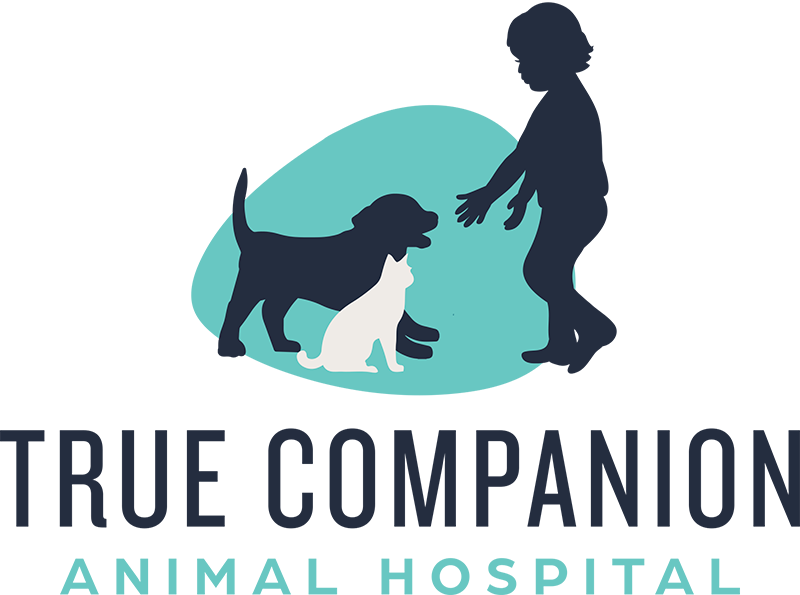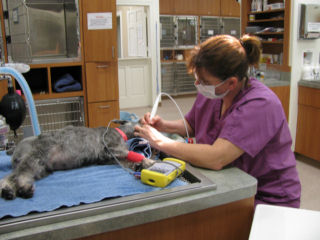Dental Procedures
At True Companion Animal Hospital, our meticulous pet dental procedure prioritizes your pet’s oral health.
Dental Procedures in Spring, TX
Beginning with the gentle administration of anesthesia, our skilled team conducts a thorough dental exam and charting, utilizing X-rays to identify hidden dental issues.
Dental Procedures
What does a professional dental treatment include?
The purpose of professional dental treatment is to remove all plaque, treat gingivitis, extract infected teeth, and halt the progression of periodontal disease. The benefit is a healthier, happier, longer-lived pet with less mouth odor.
The steps of a dental procedure are as follows:
Anesthetize the Pet
To perform a thorough, safe, and comfortable dental procedure, your pet must be anesthetized. By anesthetizing your pet we are able to completely evaluate your pet’s teeth and provide pain relief for painful procedures such as extraction.
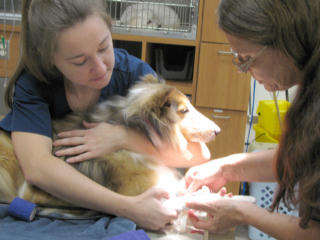
Dental Exam and Charting
Identify damaged teeth and make a plan for treatment.
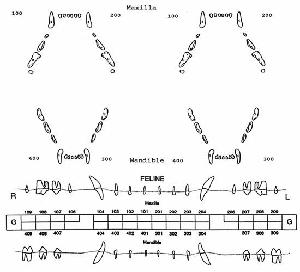
X-Ray Obviously Diseased Teeth
Discolored, broken, and enamel-damaged teeth; teeth with severe gingival recession or deep periodontal pockets.
Just like your regular human dentist, we like to take X-rays in order to evaluate the tooth under the gum line. This allows us to make accurate judgments about the health of each tooth. With this knowledge, we can accurately determine the correct way to treat each tooth. Without X-rays, the doctor is forced to “guess” whether an individual tooth should be removed or left in your pet’s mouth. If we make the wrong “guess” your pet could go home still suffering from an infected tooth despite the fact that his or her teeth look clean. We recommend and encourage that you allow us to perform X-rays on all suspicious or damaged teeth.
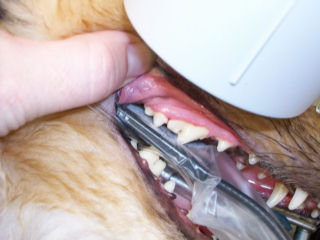
Remove Dental Tartar Remove Dental Tartar
This is performed above the gum line with an ultrasonic scaler and below the gum line with a low-speed burr.
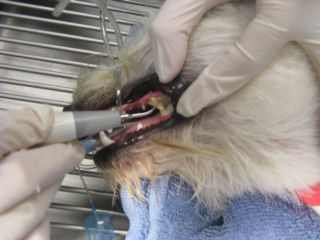
Polish and Flouride Teeth
Polishing smooths the rough surface of the tooth discouraging future tartar adherence.
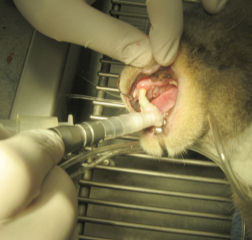
Perform Subgingival Irrigation
Tissues around the teeth are irrigated with an antiseptic solution.
Extraction of Diseased Teeth
We extract diseased teeth (unless you request a referral for a root canal.)
All severely diseased teeth should be extracted or undergo a root canal. Leaving these teeth in the mouth causes your pet pain and promotes liver, kidney, and heart disease. Many teeth are so diseased that extraction is the only option. Some teeth may be salvaged with a root canal. When you sign your pet in for the dental procedure, you will designate whether you wish salvageable teeth to be referred for root canal or extracted.
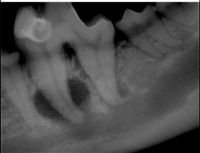
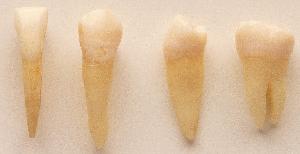
Clean and Treat Periodontal Pockets
This can be done with a dental scaler. We prefer to treat all pockets with an antibiotic product called Doxirobe. Doxirobe promotes pocket healing and discourages the progression of the pocket.
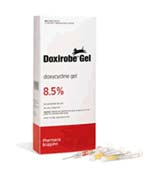
If you have any questions about our services, please contact us today at (281) 363-8708.
